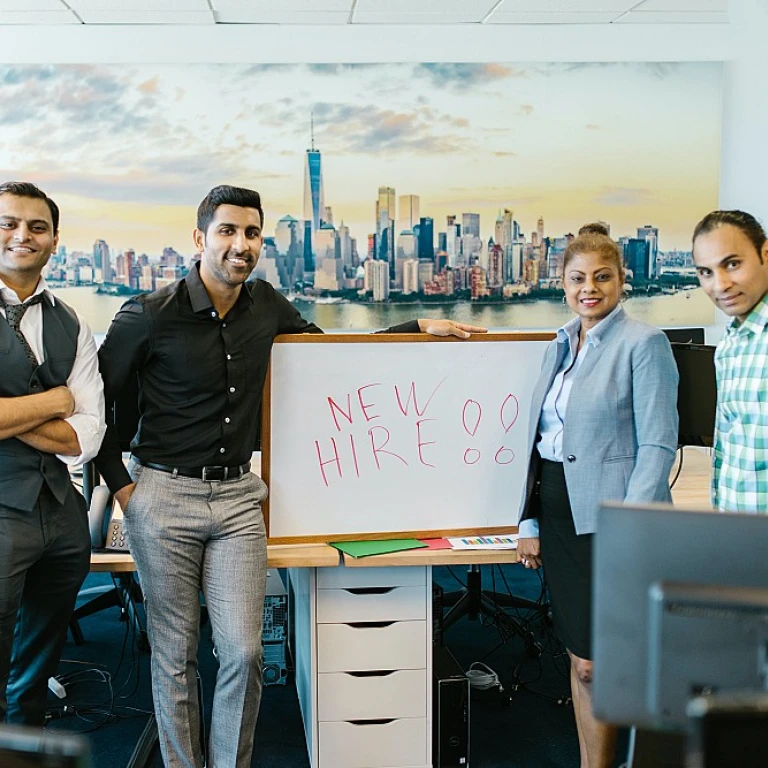
The Role of References in Career Transitions
The Importance of References in Career Changes
In the realm of career transitions, references play a pivotal role. They serve as a testament to a candidate's work ethic, skills, and compatibility with a company's culture. When you're navigating a job change, the references you provide can significantly influence the hiring process. Employers often rely on reference checks to verify the information presented during interviews and to gain insights into a candidate's past performance.
References are more than just a formality; they are a critical component of the recruitment process. They offer hiring managers a third-party perspective on a candidate's abilities and character. This is particularly important when employers are deciding between candidates with similar qualifications. A strong reference can tip the scales in your favor, while a bad reference might raise red flags.
During a career transition, it's essential to understand the role of references and how they fit into the broader hiring process. This understanding will help you prepare effectively, ensuring that your references don’t just check boxes but actively support your candidacy. For more insights on how to strategically approach your career transition, consider exploring effective resume strategies that align with your professional goals.
Why Recruitment Agencies Ask for References
Understanding the Expectations of Recruitment Agencies
Navigating the job market can be a daunting process, particularly when you're in the midst of a career transition. You may find yourself wondering why recruitment agencies often request references during this time. References play a crucial role in providing recruiters and potential employers with insights into your previous work performance, character, and professional competencies. Recruitment agencies act as intermediaries between candidates and employers. When recruiting for a company, they have a responsibility to ensure that they present applicants who not only possess the required skills but also align with the company's culture and expectations. A comprehensive reference check allows hiring managers and agencies to verify the claims that candidates make about themselves. This holistic view of a prospective employee can include their work ethic, reliability, and how they handle workplace challenges. Recruitment agencies ask for references as part of a broader strategy to mitigate risks associated with hiring. By conducting thorough reference checks, they aim to protect their reputation and the interests of their client companies. Employers rely on these checks because historical insights about a candidate's former roles can highlight patterns of behavior or skills that may not surface during the interview process. Additionally, reference requests ensure compliance with a company's privacy policy and user agreement, demonstrating respect for candidates’ information while upholding transparency. Though some candidates might feel uncomfortable providing references, especially if it involves contacting their current employer, it's essential to understand that this step is a common component of the recruitment process. It’s important to choose references wisely, considering those who will most positively reflect your professional experience and capabilities. A strong reference list can be an advantageous asset during your career transition, reassuring potential employers about your past performance and suitability for their organization. For guidance on crafting a resume that supports your career transition, visit this blog post to ensure you make a compelling impression right from the start.Choosing the Right References
Selecting Your References Prudently
Choosing the right references during a job transition is a crucial step in the recruitment process. References have the power to make or break a candidate's prospects. Therefore, it's important to mindfully select people who can enthusiastically speak to your work ethic and professional abilities.
When choosing who to ask for references, consider individuals who:
- Have collaborated with you closely and can provide detailed insights into your job performance and problem-solving capabilities
- Are familiar with your work in contexts similar to the desired role, helping to assert a match with the potential company's culture
- Hold positions of authority or have recognized reputations in your industry, which can enhance their credibility when conveying information about you to potential employers
Remember, while your current employer might seem like an ideal option, requesting them too soon during your job search may not be wise. Ensure you only ask individuals who you trust will provide a positive assessment and are willing to comply with the hiring manager's requests without breaching privacy policies. It's crucial to uphold your current employer's privacy policies and user agreements by notifying potential references at the right time.
Lastly, always ensure your references don’t express any surprises when contacted. Give them an overview of the job and possible questions the hiring manager might ask. This preparation will help present you in the best light possible, keeping the reference check aligned with your professional narrative. For more effective strategies on networking and handling references, read this article on effective strategies to locate business owners' emails for B2B success.
Preparing Your References
Optimal Strategies for Preparing Your References
Preparing your references–as part of the recruitment process–involves more than just listing names on a sheet of paper. It's a strategic task that requires thoughtful consideration and communication. Candidates should ensure that references are well-informed about the specific job requirements and can passionately speak about their work ethic and contributions.- Inform and Obtain Consent: Before listing someone as a reference, candidates should ask their permission and confirm their willingness. This step respects privacy policies and professional courtesy, ensuring that people are prepared and not caught off-guard when contacted by hiring managers.
- Provide Relevant Job Details: Share pertinent details such as the job position, company culture, and any specific skills that will be relevant to the role. This information helps prepare your references to highlight the right experiences and qualities.
- Clarify the Reference Format: Inform your references about the potential manner of contact, whether it will be via phone calls, emails, or an online reference check process. By doing this, candidates help their references feel more secure and prepared during the inquiry.
- Update Your Reference List: Regularly update your reference list as you develop new professional relationships or change career paths. This practice ensures the references reflect your most current experiences and strengths.
- Preparation for Bad or Incomplete References: Not every reference may provide glowing feedback. Anticipate and prepare for possibly bad references by considering potential gaps in your career story, and be ready to address them if they arise during the hiring process.
Handling Reference Requests During Career Changes
Managing References During Your Career Shift
Navigating reference requests when you're transitioning to a new career demands careful attention and strategic planning. As candidates, understanding how to manage these requests can significantly improve your chances during the recruitment process. Here's what you need to know:- Timing Is Key: Once you're deep into the hiring process, be prepared. Employers will usually ask for references after initial interviews, so anticipate this stage. Avoid delaying or appearing unsure when asked to provide references.
- Prioritize Privacy: If you're currently employed, think about the potential impacts of referencing your existing job. Highlight references from previous positions or projects to respect your current employer's privacy policy and to avoid any uncomfortable situations.
- Communicate Proactively: Engage with your references in advance. Inform them of potential calls or emails from hiring managers, and prepare them by sharing the job roles you're targeting. This preparation will help them provide focused, relevant feedback that aligns with the position requirements.
- Informal Checks Are Real: Be aware that some companies may conduct informal reference checks within industry networks. This informal method is usually quick and not as in-depth but can influence hiring decisions. Thus, it’s crucial to maintain professional relationships throughout your career.
- Handling a Bad Reference: If you're concerned about a potential bad reference, it’s better to address this proactively. Discuss any reservations with the reference-holder or seek alternative references who can provide a balanced perspective on your work ethic.













